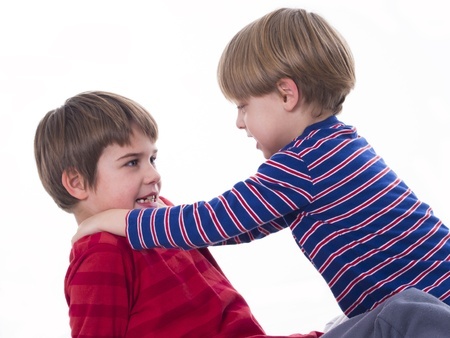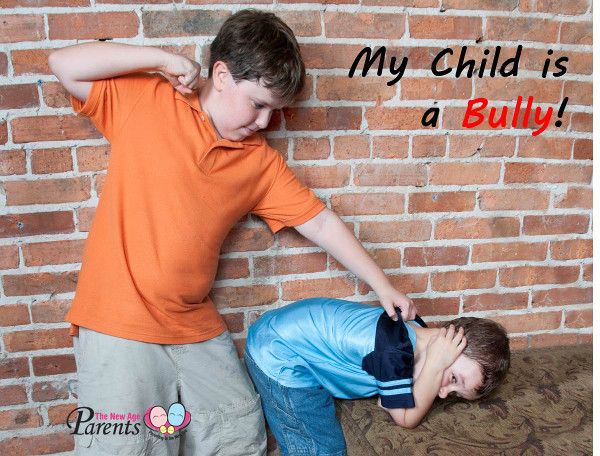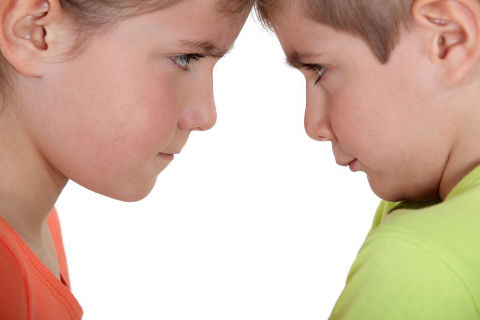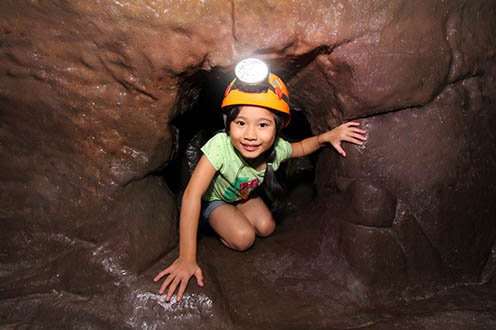We’d all like our children to be leaders, to think they are leader-material. The race for leadership crops up in all walks of academic life, from class president to magazine editorial board. There are many qualities that make a leader and many more that make a great leader.
![Is Your Child A Leader Or A Bully [Part I]](https://thenewageparents.com/wp-content/uploads/2014/09/Is-Your-Child-A-Leader-Or-A-Bully-Part-I.jpg)
At the same time, none of us wants our child to be a bully. Yet academic life is the most common setting for bullying. Just as there is a thin line of distinction between confidence and arrogance, humility and subservience, genius and madness; there is just a thin line separating leadership from bullying.
Beginnings of a Bully
‘Kids don’t suddenly become bullies,’ says Dr. Laura Markham, author of Peaceful Parent, Happy Kids: How To Stop Yelling and Start Connecting. ‘They begin by treating others with disrespect in small ways. If no one challenges them, the behaviour becomes ingrained. So the “signs” for parents to watch for are any kind of disrespectful comments to and about others.’
‘The signs are likely to vary depending on the age of the child,’ says Jaana Juvonen, Professor of Developmental Psychology at the UCLA, and an expert on bullying. ‘One sign is that friendships become volatile – one day they are intense, next day the child no longer talks to the friend. Friendships can also become more exclusive.’
She continues, ‘One set of research findings suggest that bullying perpetration is about needing and wanting to control things and people during times of social uncertainty. Such uncertainty is typical during normative school transitions (e.g. from elementary to middle school), but possibly also during family transitions (e.g. divorce, remarriage). It’s important to realize that many kids join in bullying just for a short while.’
At what point does your child take off the straight and narrow and start veering towards more dangerous territory?
Here are five warning signs and differences between a bully and a leader you should learn to recognise:
1. Bullies want power. Leaders work collectively
Does your child often undermine someone else’s work to “look good” in front of you or his teacher?
Leaders want to take the whole team forward. While they are interested in the collective outcome of an activity, they also observe and coach individual performances within the team to lift the bar for the entire team as a whole.
Bullies, on the other hand, are interested only in ensuring their own achievements are always in the limelight. They revel in the sound of their own voice. Bullies need power. They need to control everything. They feel like they should be the centre of everyone’s world and everyone should be jumping to do their bidding. They are selfish and their mantra is “I, me and mine.” They are constantly seeking attention.
2. Bullies abuse authority. Leaders use authority responsibly
Does your child speak imperiously? Does he often interrupt classmates before they have finished speaking? Does he tend to keep the best for himself? Is he hesitant to allow anyone to do something he thinks may rebound on him and show him up in bad light should it fail?
Leaders use their authority for the right reasons. Sometimes these reasons may justify withholding their authority for the best results, and leaders will gladly do this if they are convinced it’s the right thing to do.
Bullies misuse their authority. They will play favouritism, and not only allow themselves special privileges but also take pleasure in denying privileges to others. They have no regard for authority and don’t understand responsibilities go hand-in-hand with it. They are often insolent and care too much about social status and their standing in everyone’s eyes.
Dr. Markham says, ‘When children are four or five years old, they experiment with using power, which includes how to get what they want from other people. So they often engage in a mild form of bullying, along the lines of “If you don’t do what I want, you can’t come to my birthday party!” When parents notice this, they can intervene to set limits about what’s appropriate in relating to others, and to help the child see how to find win-win solutions.
‘When kids are older, parents are often not present when bullying occurs, so parents need to be sensitive to any comments from other parents about how their child acts. Even mild incidents of use of force with peers are inappropriate.’
3. Bullies lack empathy. Leaders see others’ points of view

Do other children complain your child is unapproachable, intimidating or not open?
One of the biggest and most valuable qualities in a leader is empathy. Leaders who have climbed up the hierarchical ladder from yesterday’s grass-roots will be well-versed with the problems and issues classmates are faced with at these levels. Leaders give freely and care about the team.
Bullies find it difficult to see things from another person’s point of view. They love playing the blame game – nothing is ever their fault. When confronted with a problem, they will first look out for themselves and care about the team later. Bullies think nothing of grabbing the credit for someone else’s work or making it appear as if they are the reason for every success. They don’t understand teamwork and team spirit.
4. Bullies use sticks instead of carrots. Leaders inspire and encourage
Does your child find it difficult to genuinely enjoy someone else’s success or to honestly commend someone for their work? Does he often resort to veiled warnings of unpleasant consequences to get his way?
In his book Talent is Overrated: What Really Separates World-Class Performers from Everybody Else author Geoff Colvin says “Inspiring Authority” is the best way to get the most productivity and efficiency from a team. When goals are clear and everyone on the team wants to be moving in the same direction, it is easier to sustain the momentum by rewards and appreciations than by punishments and threats. Leaders invest time and energy in building up trust, they earn the respect of their team members the hard way.
Bullies, however, prefer to use the sticks and stones approach to drive the team. They thrive in a FUD environment – Fear, Uncertainty and Doubt – and play on people’s emotions to extract allegiance. They use shortcuts, often unethical and immoral, to get the work done.
5. Bullies are unperceptive, leaders know and discern their teammates
Can your child list three strengths and weaknesses of each of his friends?
Leaders are highly discerning people. They have trained themselves to find out what works best with teams, what makes certain individuals tick, whose strengths will aid and abet a project, whose weaknesses need to be worked upon for the desired outcome. They can anticipate their co-workers’ needs, fears, anxieties, issues and expectations. They can carefully tease out the root cause of problems and help solve them. Leaders know what motivates their team members, what can create a sense of mission for them to be satisfied at work and they make these things a part of the team culture.
Bullies take no interest in what others think, say or do. They are dictators and will unflinchingly steamroller over others’ feelings and opinions. Because they don’t bother “reading” others, they are ill-prepared for making any appropriate responses or strategies well in advance. They rarely bring out the best in their team.
Read Part II of our Child Bully article as our writer talks about how parents can manage their children bullying behaviours.
By Devyani Borade.
* * * * *
Like what you see here? Get parenting tips and stories straight to your inbox! Join our mailing list here.
Want to be heard 👂 and seen 👀 by over 100,000 parents in Singapore? We can help! Leave your contact here and we’ll be in touch.




























































Leave a Comment: